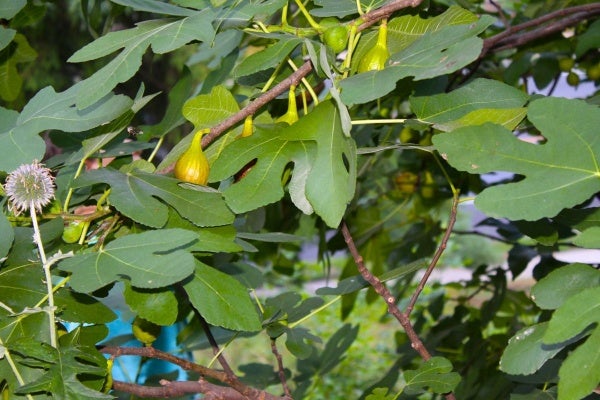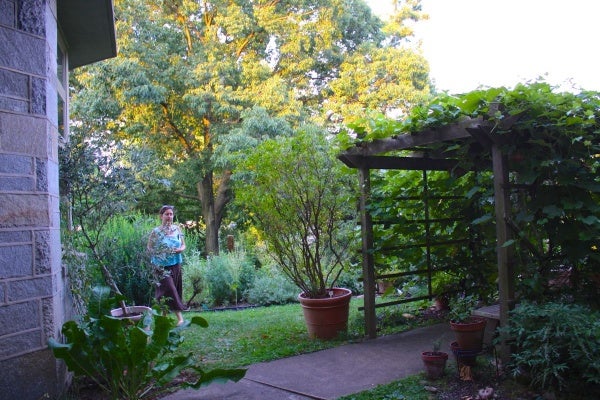Plants native to Israel find a home in Philadelphia
While the Northwest section of Philadelphia may be filled with patches of plants, there is a gem among them that is easy to overlook.
The Israel Garden grows tucked behind the Germantown Jewish Centre in Mt. Airy. While it is visible from Lincoln Drive, it’s only upon closer examination that one truly understands the uniqueness of this little green nook.
“It’s a connection to spirituality and God through taking care of the Earth,” said Corri Gottesman, head gardening volunteer at the Centre and self-dubbed “plant geek.”
The Israel Garden contains only plants mentioned in the Bible or the Talmud, plants that are native to Israel or part of Israel’s agriculture, and plants that are part of Israeli cuisine.
“For Jewish people there’s always been a yearning toward Israel,” said Gottesman. “[The garden] is a way to connect to Israel through nature.”
The garden’s origin
The garden began about 20 years ago when congregant Charlie Miller – founder and president of Roofmeadow, a green roof company – made a list of possible plants that could grow in the garden. Gottesman said she took over as head gardener about 10 years later.
The garden has gone through different phases over the years, starting a bit larger than it is today, stretching down the hill toward Lincoln Drive. Today, it’s much smaller, and is situated completely behind the Jewish Centre. The garden’s giant fig tree, however, is still visible from Lincoln Drive.
Philly is not Jerusalem
The constant struggle over all the years, though, has been catering to the sophisticated demands of plants that are more accustomed to the climate of Israel.
“In making a garden like this, given that a lot of the plants are in containers” said Gottesman, “It’s hard to keep them healthy.”
Each autumn many of the container plants, including the pomegranate and olive trees, make a trip to warmer climes to spend their winter indoors.
“We have a professional moving company called the Sultans of Schlep,” said Gottesman. “They have this little VW van, and they fill up the van with our plants and move them to a congregant’s greenhouse and she takes care of them in the winter.
Growing in containers also sometimes stunts the production of fruit. Gottesman said at one time, the pomegranate would be filled with beautiful ruby-colored fruit. But, production has gotten less and less. Gottesman is currently raising up a smaller tree to take the place of the big pomegranate when it stops fruiting completely.
The grapevines, once providing fruit juice for Rosh Hashanah, have gotten a mold and will soon need to be replaced.
“I’m going to be taking out these particular plants and I’m going to dig and put in new soil and start with new plants,” said Gottesman. “It’ll probably take about two to three years for us to get grapes again.”
But despite the veritable growing pains, since its inception the garden has always provided a place of respite for congregants, particularly on holidays.
Gottesman said on Yom Kippur, otherwise known as the Day of Atonement, members often come outside in the garden to experience its peace and tranquility.
And from solemn to celebratory, the garden plays a big part in the Feast of Sukkot when members of the congregation use four species from the garden – willow, date palm, myrtle, and etrog (citron) – bundled together to use in a religious ceremony paying homage to agriculture.
Most recently, a vegetable garden was added to honor Jay Furman, one of the founding members of the Centre. Furman, now a centenarian, volunteered in the garden for many years before his health prevented him from doing so.
Throughout the years, no matter the manifestation, the plants of the garden have been adding to the stories of the Germantown Jewish Centre.
“Every plant here has a story,” said Gottesman. And there is still plenty of room to grow.
WHYY is your source for fact-based, in-depth journalism and information. As a nonprofit organization, we rely on financial support from readers like you. Please give today.















